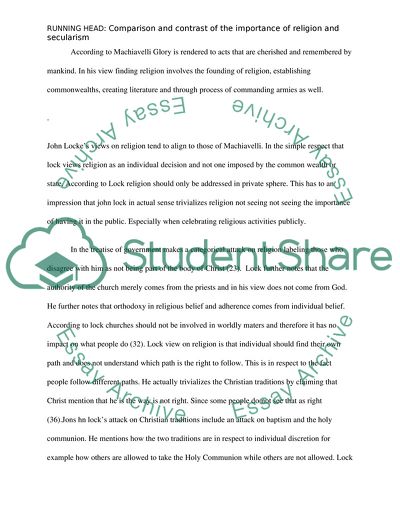Cite this document
(Compare and contrast the importance of religion and secularism in the Essay, n.d.)
Compare and contrast the importance of religion and secularism in the Essay. Retrieved from https://studentshare.org/history/1787285-compare-and-contrast-the-importance-of-religion-and-secularism-in-the-thought-of-machiavelli-locke-and-marx-engels
Compare and contrast the importance of religion and secularism in the Essay. Retrieved from https://studentshare.org/history/1787285-compare-and-contrast-the-importance-of-religion-and-secularism-in-the-thought-of-machiavelli-locke-and-marx-engels
(Compare and Contrast the Importance of Religion and Secularism in the Essay)
Compare and Contrast the Importance of Religion and Secularism in the Essay. https://studentshare.org/history/1787285-compare-and-contrast-the-importance-of-religion-and-secularism-in-the-thought-of-machiavelli-locke-and-marx-engels.
Compare and Contrast the Importance of Religion and Secularism in the Essay. https://studentshare.org/history/1787285-compare-and-contrast-the-importance-of-religion-and-secularism-in-the-thought-of-machiavelli-locke-and-marx-engels.
“Compare and Contrast the Importance of Religion and Secularism in the Essay”. https://studentshare.org/history/1787285-compare-and-contrast-the-importance-of-religion-and-secularism-in-the-thought-of-machiavelli-locke-and-marx-engels.


